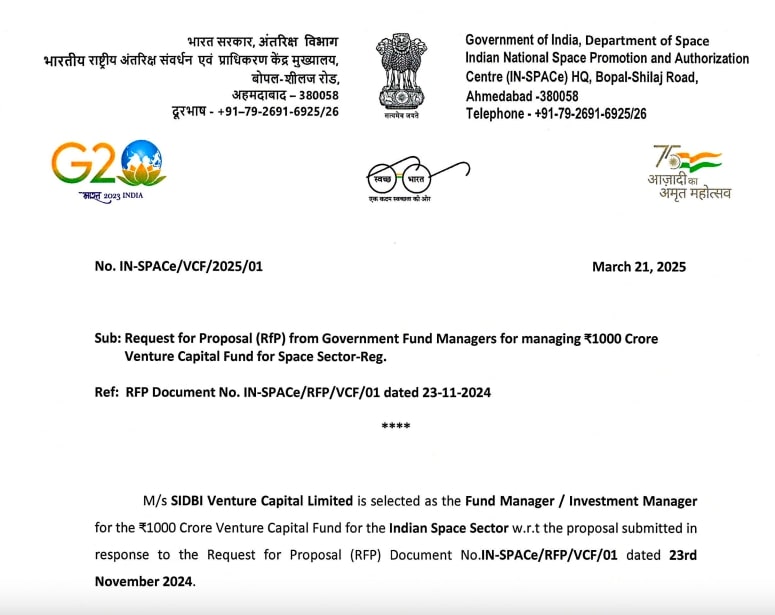The Indian National Space Promotion and Authorisation Centre (IN-SPACe) has appointed SIDBI Venture Capital Limited (SVCL) to manage a ₹1,000 crore venture capital fund aimed at boosting space technology startups in India. The primary objective of this fund is to provide crucial capital support to private players in the space sector, promoting innovation and growth.
This fund will be deployed over five years, starting with ₹150 crore in 2025-26, followed by ₹250 crore annually for the next three years. It will conclude with ₹100 crore in 2029-30.
Speaking of details, the initiative aims to support around 40 startups across the space supply chain, including upstream, midstream, and downstream sectors. Growth-stage startups can receive funding between ₹10 crore to ₹30 crore, while late-stage startups may get between ₹30 crore to ₹60 crore.


The move is also expected to generate employment opportunities by enabling startups to scale, invest in research and development, and expand their workforce.
This development aligns with the Indian government’s broader strategy to encourage private participation, support startups in the space domain, and significantly expand the space economy.
Notably, in 2022, India’s space sector was valued at $8.4 billion. The goal is to increase this to $44 billion by 2033, capturing about 8% of the global space market. By 2040, the aim is to further expand India’s share in the global space economy to 8-10%. The Indian Space Policy 2023 and organizations like the Indian National Space Promotion and Authorization Center (IN-SPACe) and NewSpace India Limited (NSIL) are encouraging private-sector participation and international collaborations.
Even, India is actively involving private startups in manufacturing launch vehicles and building a home-grown constellation of Earth observation satellites. In fact, IN-SPACe received nine applications from various companies, including startups like Pixxel, to participate in these initiatives.
Notably, Bengaluru-based space-tech startup Pixxel has made significant steps in hyperspectral imaging technology. In January 2025, Pixxel successfully launched three of its six planned hyperspectral imaging satellites aboard a SpaceX rocket from California. Meanwhile, another example is Skyroot Aerospace, founded in 2018 by former ISRO scientists. In November 2022, Skyroot successfully launched Vikram-S, India’s first privately developed rocket.
Earlier in February 2025, IN-SPACe launched a $57.58 million fund to support early-stage space technologies and reduce reliance on imports. This fund offers financial support of up to 60% of project costs for startups and small to medium businesses, and 40% for larger industries, with a maximum funding cap of ₹250 million per project.










